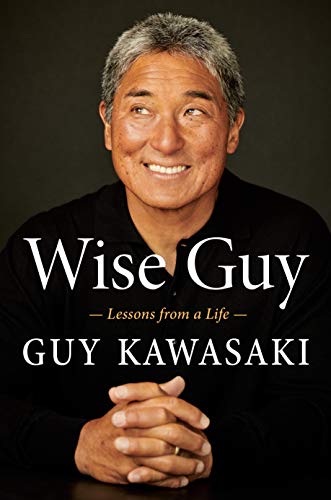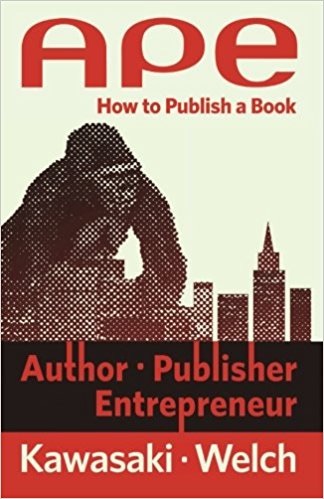
Wise Guy: Lessons From a Life by Guy Kawasaki uses his unique experience with Apple and other tech companies along with his life beyond work to distill wisdom he has gathered to date. His stories are engaging and this book can save you a lot of pain as you strive to be a better leader and a better person. It may well help you have a happier life. As a devoted parent, he has created a valuable book for parents. I strongly recommend it.
Preface
- Rather than an autobiography or a memoir, this book is a compilation of the most enlightening stories of Guy’s life. It’s lessons, not history. Perhaps Guy’s stories can help you live a more joyous, productive, and meaningful life. If Wise Guy succeeds, that will be a pretty good story.
1. Immigration
- Guy’s great-grandparents from his father’s side emigrated from Hiroshima, Japan to Hawaii to avoid military service during the Russo-Japanese War. They worked on farms for $1 a day. Guy’s maternal grandfather also immigrated from Japan where he met his wife. Guy got his name from Guy Lombardo, a famous bandleader from Canada who his father knew. While his parents didn’t go to college they read a lot and were very fond of music. After three tries his father was elected to the state senate where he served twenty years.
- Guy grew up in a poor section of Honolulu. His neighborhood was a melting pot at the time, but Japanese-Hawaiians were looked down on. His parents worked hard and placed a high value on education. Guy believes that by living in America, he was able to accomplish a great deal more than if he grew up in Japan, which wasn’t likely in Hiroshima. The wisdom here is to change a losing game or one that is going nowhere. This might require moving like Guy’s family did.
2. Education
- Guy believes that education is the great catalyst and equalizer. He credits his sixth-grade teacher for telling his parents that he shouldn’t take the typical path through Hawaii’s public schools. This meant great personal financial sacrifice for his parents. Guy found that his best teachers were also the toughest in that they always had high expectations. The advice here is to seek out people who will challenge you. If you are a teacher or the boss, you aren’t doing any favors by lowering your standards. The future cost of short-term kindness is great.
- Guy suggests that you also teach respect for authority and avoid trying to overprotect children. Sometimes being scared can teach an important lesson. Kids should know that people aren’t good or bad. Most of us have done good and bad things. Life offers a lot of contradictions. When it came time to go to college Guy wanted to go to Occidental where he could play football. His father told him no and that if he was going to pay for college Guy was going to Stanford. Guy got into Stanford even though his grades and SATs were not so great because at the time his Asian heritage made him a desirable minority. Guy recommends going away to college so you can meet people from different backgrounds.
3. Inspiration
- Guy was motivated to work hard so he could afford a nice car. He believes that it doesn’t matter what motivates you as long as you are motivated. He also recommends If You Want to Write: A Book About Art, Independence, and Spirit by Brenda Ueland for inspiration even if your goal is to do something other than writing. After getting robbed twice in high school Guy vowed to work hard so he could avoid public transportation and high crime neighborhoods.
- When he told his father that a passerby thought he was a gardener because he looked Japanese his father told him to get over it. Don’t look for insults and don’t let other people get to you. Condoleezza Rice told him “don’t ever see yourself as a victim because then you will start acting like one.” You must believe that you control your own fate. Be sure to read Mindset by Carol Dweck. You can do some unbelievable things, but you have to use the right tool. It’s ok to quit something as long as you reboot and restart. This chapter ends with the text of the speech he gave to the graduates at Menlo College in 2012. It’s full of good advice.
4. Apple
- Guy worked at Apple from 1983 to 1987 and from 1995 to 1997. These two “tours of duty” made him what he is today. When he first saw MacWrite and MacPaint he was dumbfounded by how cool the Macintosh was. His job was to convince software companies to produce products for the Mac. He was an evangelist. Guy felt that the cool aspect of the Mac made his job easy, but he worked hard and was smart enough to succeed. There are no perfect candidates for a job, only successful candidates who make their shortcomings irrelevant. A lot of people get jobs because they know someone. Don’t worry about that, just deliver.
- Working for Steve Jobs required that you prove yourself every day. He demanded excellence and kept you at the top of your game. It was sometimes unpleasant and always scary, but it drove you to do your finest work. Steve demanded honesty and saw it as a test of competence and character. It’s also easier than lying. Trust but document. It’s good to cover your ass when you are bending the rules. Guy recommends Drive: The Surprising Truth About What Motivates Us by Daniel Pink. Pay and perks are nice but look for a job where you can learn new skills, and work autonomously towards a meaningful goal. This chapter concludes with the top eleven lessons Guy learned at Apple.






